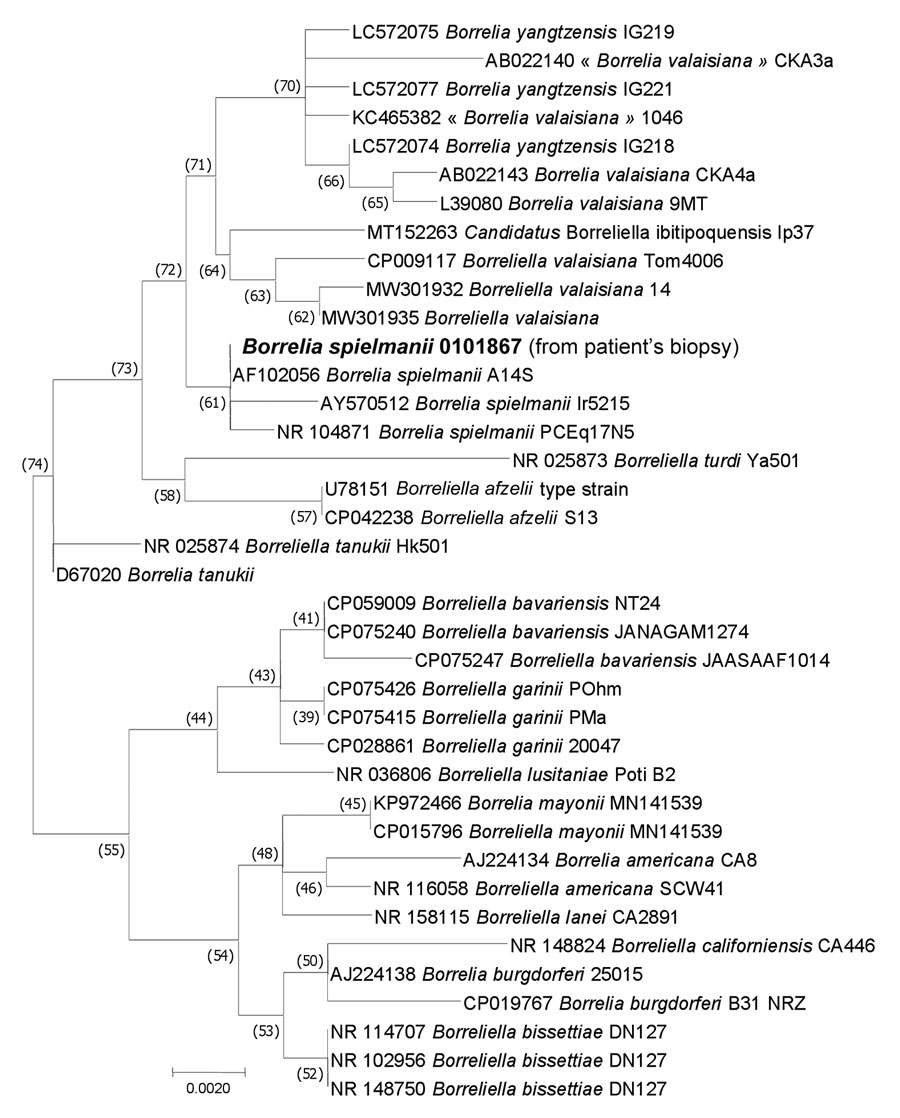Volume 29, Number 11—November 2023
Dispatch
Erythema Migrans Caused by Borrelia spielmanii, France
Figure 2

Figure 2. Maximum-likelihood phylogenetic tree of the 16s rRNA gene (rrs) of Borrelia genus bacteria showing the position of the B. spielmanii sequence obtained from the patient (large bold font) Evolutionary analyses were conducted using TOPALi version 2.5 (http://www.topali.org). The sequences of the 16S rDNA amplified in this study with other 12S rDNA tick sequences available on GenBank (910 positions in the final dataset) were aligned using ClustalW (https://www.genome.jp/tools-bin/clustalw) implemented on BioEdit version 3 (https://bioedit.software.informer.com). The evolutionary history was inferred by using the maximum likelihood method based on the Hasegawa–Kishino–Yano model plus invariate sites plus gamma distribution. The percentage of trees in which the associated taxa clustered together is shown next to the branches. GenBank accession numbers are provided. Scale bar indicates nucleotide sequence divergence.